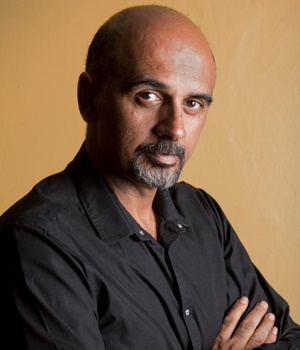
For almost 20 years I have been working with the SABC either through directly commissioned work or in later years as a co-production partner. In this time, I have been both enthused and depressed about the attempts to democratise the airwaves.
In 1997, hope still abounded and active steps were being taken by the SABC to transform from a state to a public broadcaster. Vested interests inside the SABC actively blocked many genuine attempts at change, more often than not because they saw their individual and collective power being undermined. This group was made up of largely white senior management, but not exclusively so.
That said, when I began my life in TV, primarily as a freelance current affairs journalist, the SABC allowed me to take a critical look at the SA Communist Party, a Reserve Bank whistle-blower, rape victims and HIV-prevention policy, and the “shoot to kill” type policing of the “Bushmen” in the Northern Cape.
By the early 2000s, after a considerable bout of similar TV journalism at the newly established free-to-air broadcaster e.tv, I moved into long-form documentary work.
At this stage, there was only one commissioning editor for documentaries across all three SABC channels, who had a total of 14 half-hour slots available for commissioning. But there was hope. In 2003, plans for a major expansion of documentary slots was under way on SABC2, the only channel with a clearly defined public service broadcasting mandate.
The attempt to realise the new adopted mandate was very patchy. Getting the nation in conversation with itself began to take a back seat due to a confluence of factors.
The new context of a multichannel environment in South Africa led the SABC to respond typically, like the monopoly it was, believing it had to copy the sort of the programming of the commercial channels that were taking audiences away. This proved catastrophic, as they failed to realise that people expected informative and high-quality products from the public broadcaster. Quality factual programming was cut back and budgets were badly affected.
Co-productions, where the SABC was usually only one of a few partners, still took place. It was usually only through such projects that we saw quality documentaries on our screens and drama series that attempted to push the envelope. Then two major things happened that set the SABC into a steep downward spiral.
The first was the battle over political control of the SABC in 2007, leading to critical voices being silenced. Later, the board got itself involved in serious infighting, which mirrored the factionalism inside the ANC ahead of the Polokwane conference.
The process saw its function of oversight being critically undermined very shortly before the economic storm in 2008 that saw a massive decline in advertising revenue.
The next thing, independent producers were owed hundreds of millions of rands.
The SABC’s financing model was running into trouble even before the great recession of 2008. The ANC’s Polokwane conference of 2007 passed a resolution to provide the SABC with 60% of its funding from the state – to ostensibly allow it to meet its mandate unfettered by audience figures and advertising revenue, which had begun to fall.
In hindsight, maybe the resolution was simply an attempt to bring the SABC more firmly under state control so that it could assist government in meeting its developmental objectives. Whatever the rationale, we were witnessing the undermining of internal attempts to run an independent, impartial news and currents affairs service. In its place was a creeping return to a state broadcaster where journalists were slowly becoming little more than spokespeople for government and the governing party.
Since 2005, organised chaos has reigned at the SABC, with eight CEOs coming and going. State capture has become a blinding reality. In attempting to get my latest film, Miners Shot Down, screened on the SABC, I submitted the film the moment it was ready, in March 2014. I knew from what was going on at the SABC that the film would only have a hope of being screened if it won some critical acclaim. But award after award failed to shift anything.
Instead, the only commitment the SABC was prepared to make was that it would make a decision after the Farlam report was released. The widows of miners killed in Marikana in 2012 turned up at the broadcaster’s doorstep asking for them to show the film. The SABC spokesperson denied any knowledge of the documentary.
Then the film received an International Emmy six months after the report was released, and the SABC stated that they had not turned the film down.
A meeting was called by the head of TV; in attendance were the head of SABC2 programming, the head of education and the acting group executive for news and currents affairs.
The discussion was surreal and it soon transpired that most of the bigwigs had not seen the film. SABC chief operating officer Hlaudi Motsoeneng’s return from suspension was on the cards and I decided to play it safe rather than be sorry. Consequently, I gave the film to e.tv.
Following the news that e.tv was airing the film, I received an email from the SABC head of TV, which Motsoeneng was copied into, giving scant reason for their refusal, other than that e.tv was screening the film.
Trust has been lost in the SABC by those of us who can afford to opt out. But giving up on the idea of the SABC becoming a pillar of a more democratic South Africa would be akin to digging our own collective grave.
. Desai is a Johannesburg-based film maker who runs film and TV company Uhuru Productions. He is a
well-known industry activist involved with membership of the SOS: Support Public Broadcasting Coalition
. The feature-length version of Miners Shot Down screens on e.tv tomorrow at 10pm




 Publications
Publications
 Partners
Partners








